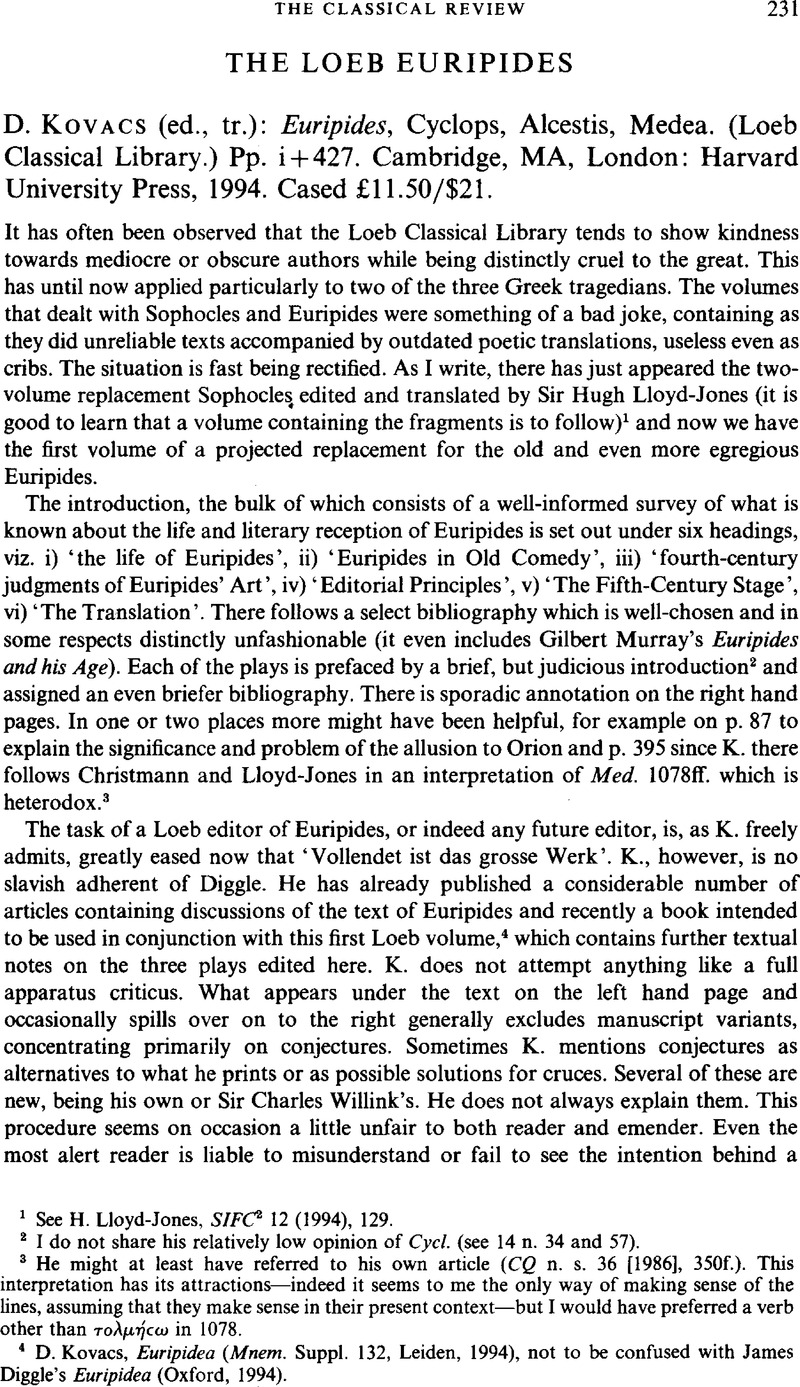No CrossRef data available.
Published online by Cambridge University Press: 16 February 2009

1 See Lloyd-Jones, H., SIFC2 12 (1994), 129.Google Scholar
2 I do not share his relatively low opinion of Cycl. (see 14 n. 34 and 57).
3 He might at least have referred to his own article (CQ n. s. 36 [1986], 350f.). This interpretation has its attractions—indeed it seems to me the only way of making sense of the lines, assuming that they make sense in their present context—but I would have preferred a verb other than Тολμήсω in 1078.
4 Kovacs, D., Euripidea (Mnem. Suppl. 132, Leiden, 1994)Google Scholar, not to be confused with Diggle's, JamesEuripidea (Oxford, 1994).Google Scholar
5 But see Diggle, op. cit., 454.
6 Gow ought not to have used Soph. Trach. 769 to make the equation with пέпλοс in 758, for, in the former, хιТών appears in a simile.
7 He defends his propensity in CQ n. s. 41 (1991), 34.Google Scholar
8 Seaford is perhaps over-literal here, not even considering the possibility that Odysseus is being less than totally frank.